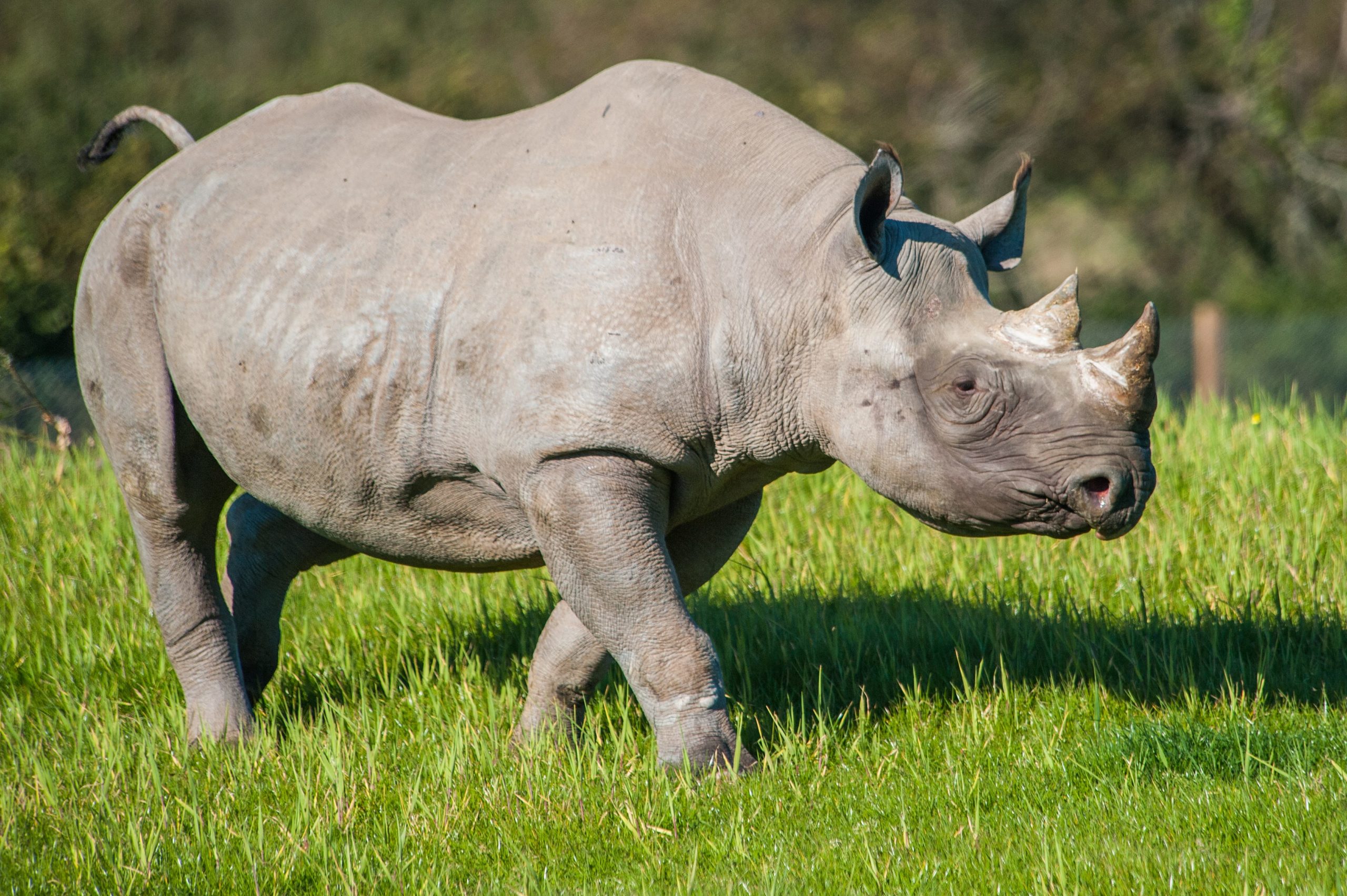

Kifaru Reserve is home to our ‘crash’, or group, of Eastern black rhino.
They also tell the strongest conservation story, with fewer than 1,400 left in the wild. We’re one of only seven zoos in the UK to care for this critically endangered species. So, it’s also rare to see them in zoos.
We have three black rhinos at Folly Farm – Dakima, Manyara and Nkosi – and you can see them in Kifaru Reserve. ‘Kifaru’ means ‘Rhino’ in Swahili. When designing our black rhino enclosure, we learnt from other leading UK and European zoos. So we know it provides the best conditions for breeding black rhino.
Black rhino are usually solitary animals, which means they like to live alone. So our rhino house has three bedrooms connected to three separate paddocks. You can walk right around the reserve to get an amazing view of the rhinos charging backwards and forwards, and rolling in the mud. Which they like to do. A lot.
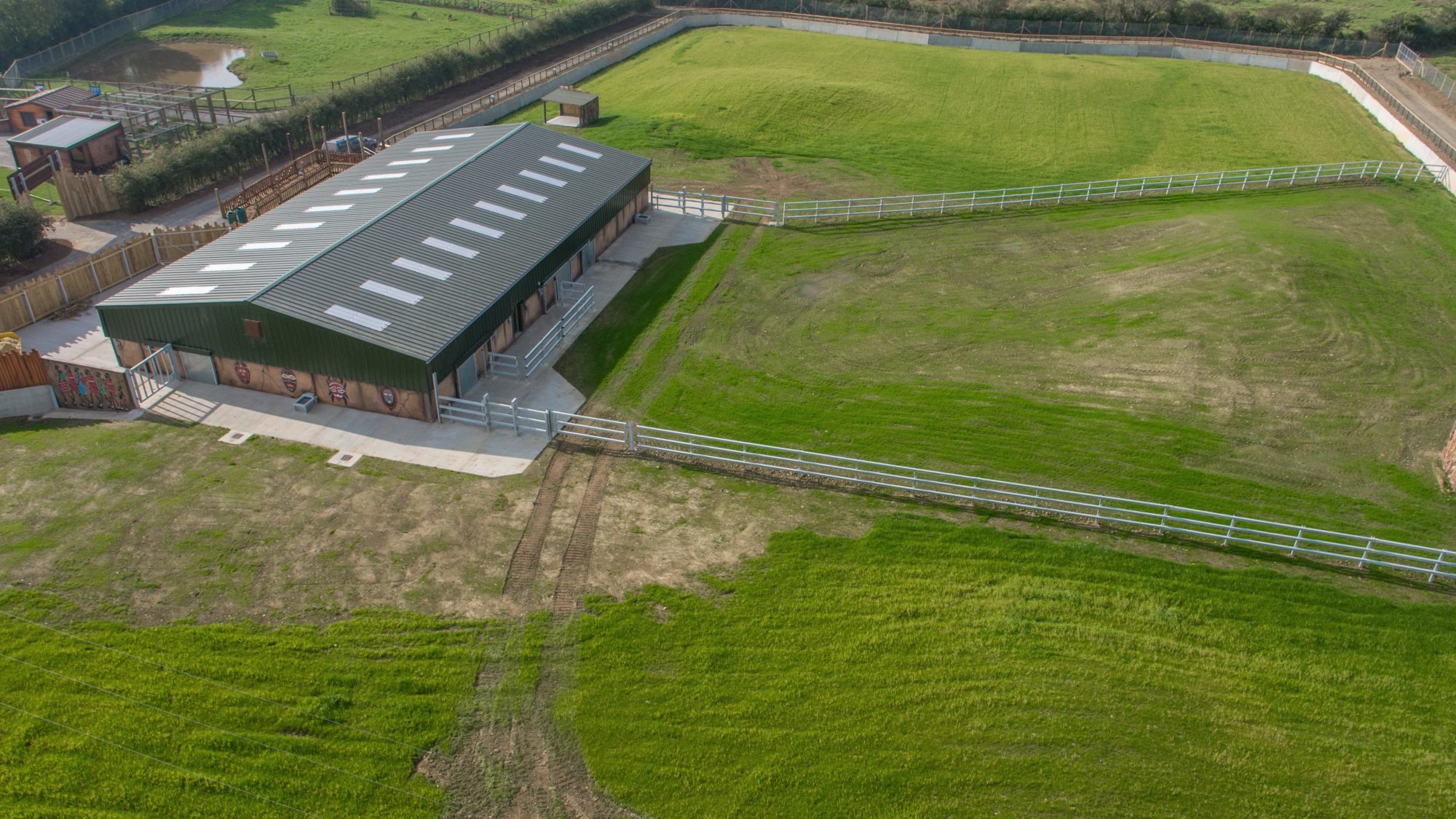
You’ll see a black rhino even when it’s raining, or they’re relaxing indoors as our indoor viewing area looks onto one of our bedrooms. Here you’ll see ‘browse’ (tree branches) hanging from the ceiling for the rhinos to munch. Black rhino have a hooked lip, which they use to pull leaves off branches. Some of the other types of rhino, including white rhino, have straight lips because they graze on grass, much like cows.
You’ll also see tree trunks on the wall. Our rhinos rub their horns on these to keep them healthy. The rest of the house has been designed to give our black rhino, the privacy they need to breed. And in January 2020 we were delighted by the arrival of our first rhino calf, a male, Glyndwr. He was not just a first for Folly Farm but also the first rhino to be born in Wales, so we’re super proud! As we’re part of a breeding programme for this critically endangered species, Glyndwr moved in November 2023 to another member zoo in the UK to further the breeding programme. What an amazing story for conservation and our Welsh zoo! In fact numbers of black rhino have doubled since 2015 when there were only 650 left in the wild.
We’re pleased to be able to use our Kifaru Reserve enclosure to explain the dangers that face black rhino to the 500,000 people who visit us every year. We’re also raising money for insert here. You can read more about we do for conservation and the breeding programmes we belong to.
Manyara
Manyara was born on 15 August 1998. She joined us from Chester Zoo in October 2015.
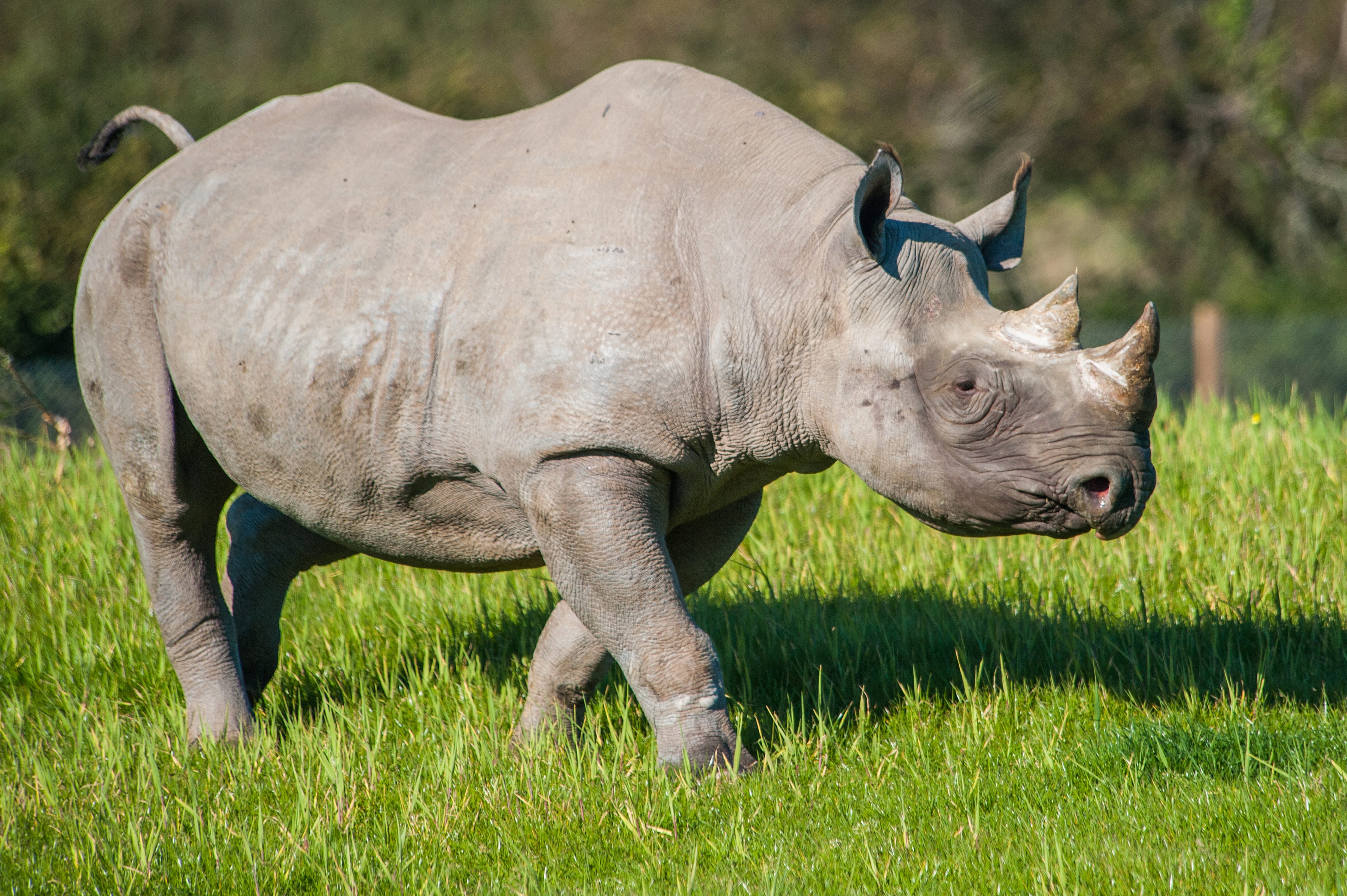
Nkosi
Nkosi is our breeding male. He was born on 22 January 2011. He joined us from Port Lympne Reserve in Kent in October 2015.
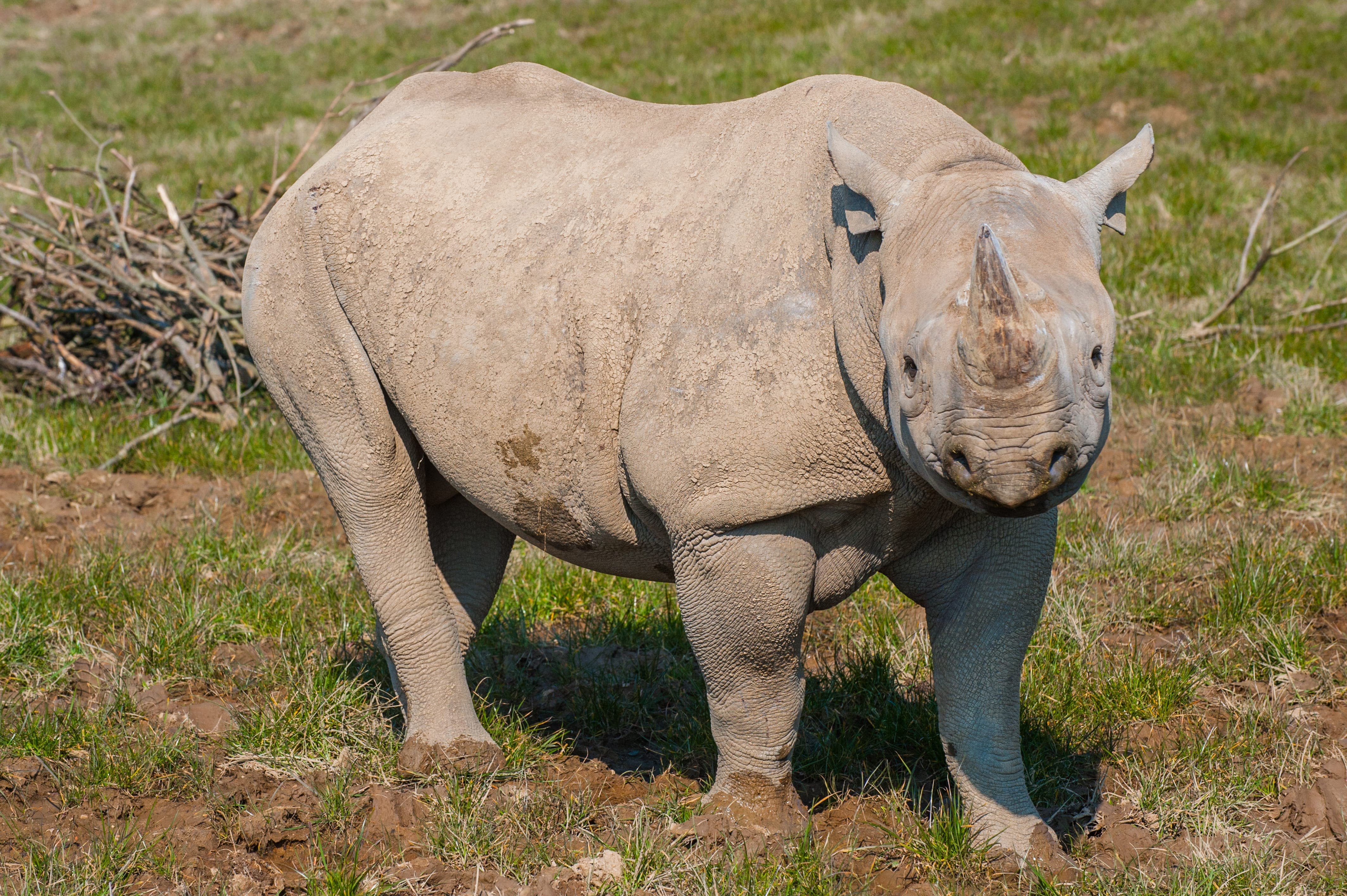
Dakima
Dakima is our breeding female. She was born on the 07 March 2013 and joined us from Chester Zoo in May 2017. She gave birth to her first calf, Glyndwr, a boy, in January 2020!
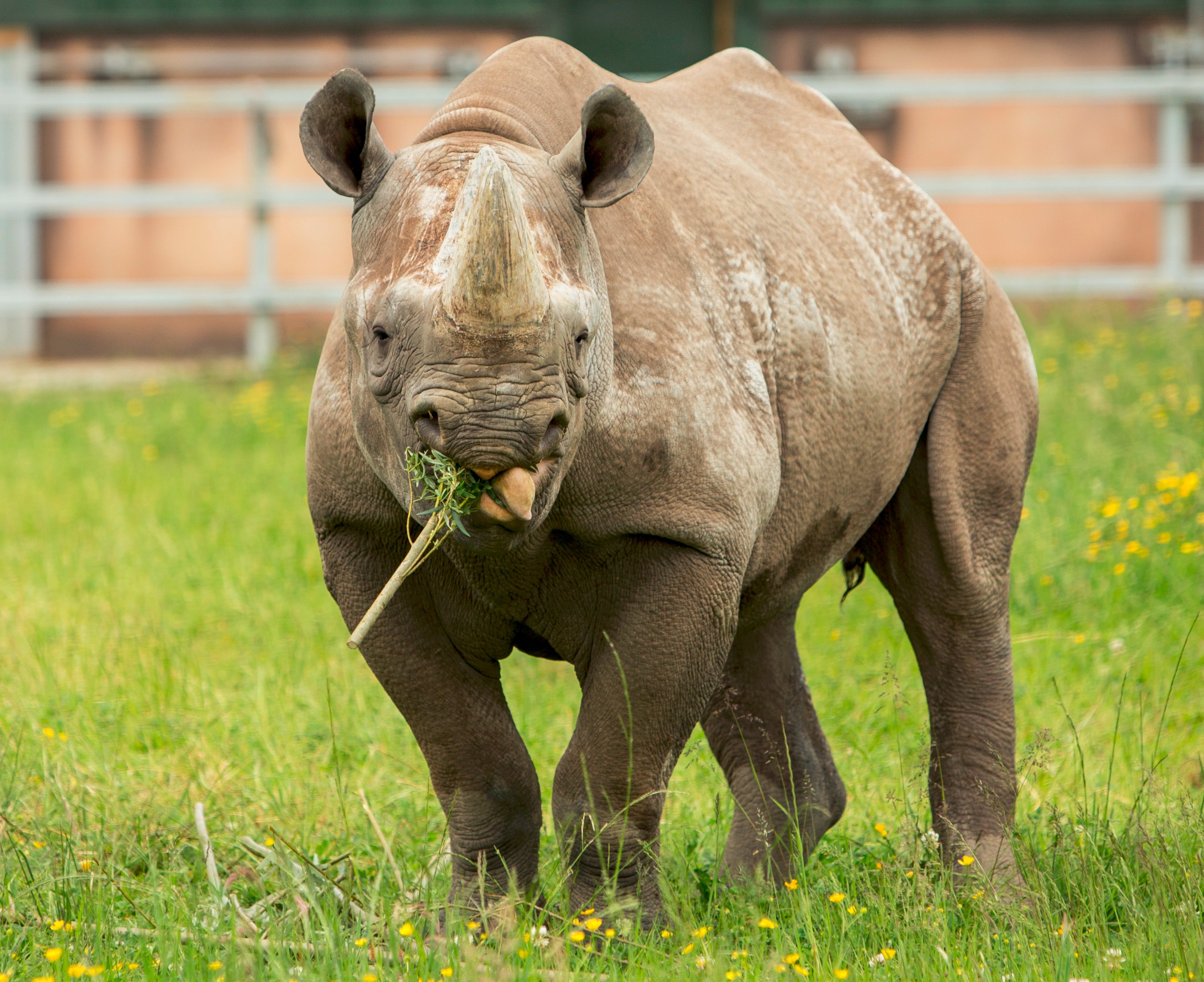
Proud parents
On 16 January 2020 Dakima and Nkosi became proud parents to Glyndwr. The first rhino to be born in Wales, his arrival was hugely important to the breeding programme for this critically endangered species as was his move to another UK zoo in 2023 to further the breeding programme as a breeding male. He was given a proud Welsh name in honour of Folly Farm’s founding director, Glyndwr Williams (Farmer Glyn!) who was so passionate about bringing this species to Pembrokeshire! Glyndwr is now furthering rhino conservation as a breeding male at another UK collection.
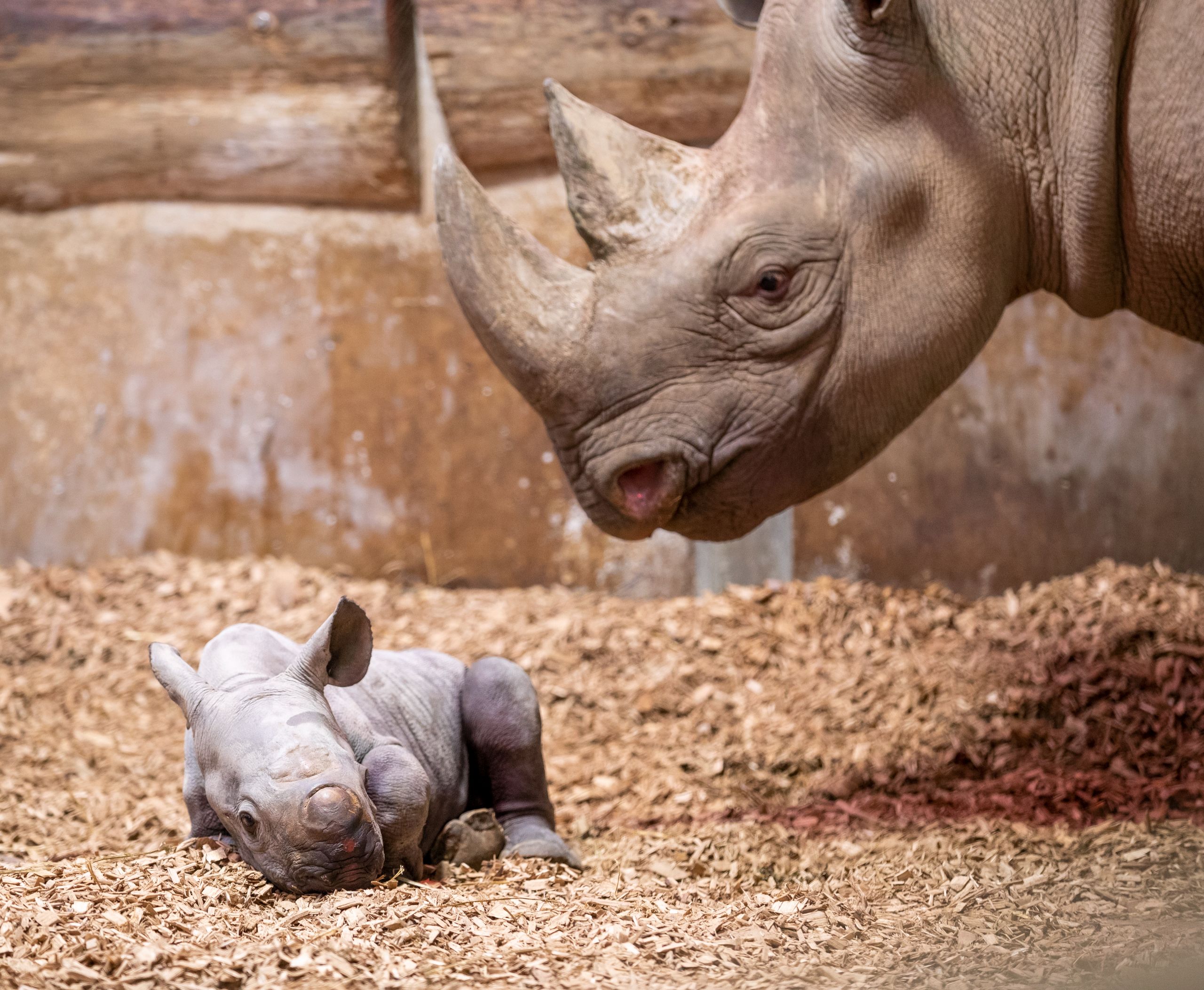
If you love rhinos you can adopt a rhino with us, the perfect gift for yourself or for someone special.
The rhino house is also home to our pancake tortoises. As their name suggests, they are much flatter than the tortoises you might be used to. Learn more about black rhino, including fun facts.